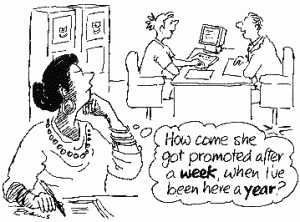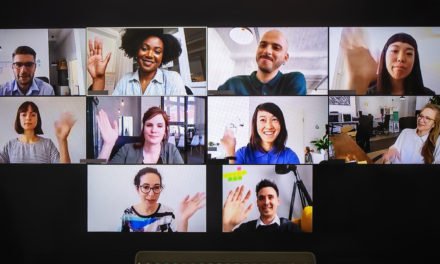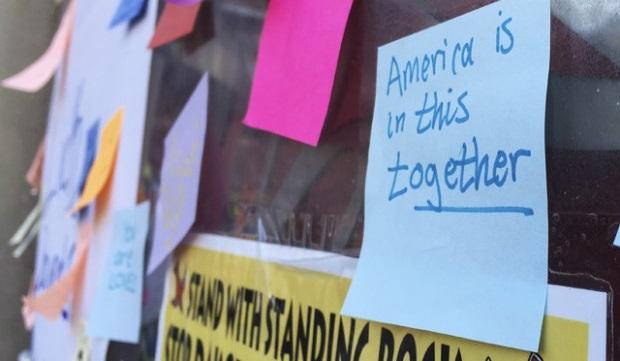 In a recent piece in the New York Times by Nancy DiTomaso, Vice Dean for Faculty and Research and Professor of Management and Global Business at Rutgers Business school, called How Social Networks Drive Black Unemployment, she highlights some of her research that points to favoritism as a major reason for higher unemployment rates among African Americans.
In a recent piece in the New York Times by Nancy DiTomaso, Vice Dean for Faculty and Research and Professor of Management and Global Business at Rutgers Business school, called How Social Networks Drive Black Unemployment, she highlights some of her research that points to favoritism as a major reason for higher unemployment rates among African Americans.
It is no secret that the unemployment rate for African Americans is always about twice the national average, regardless of economic conditions.
DiTomaso asserts that rather than discrimination, favoritism drives this disparity. She admits that favoritism has a strong racial component and goes on to explain that the “the mechanism that reproduces inequality…may be inclusion more than exclusion.” In other words those who are included in informal networks get the edge in the job market.
I gave Professor DiTomaso’s arguments a great deal of thought. I have met her and have a high regard for her work.
I don’t want to nitpick on what might be semantics but I would argue that it is still exclusion not inclusion that is the problem. African Americans have historically been excluded from the informal network of family and friends who have the influence. I would posit that favoritism is a form of discrimination. Those who are selected because of their family/friend ties receive favorable discriminatory treatment by definition of the word “discriminate”. According to Merriman-Webster dictionary discriminate means to “make a difference in treatment or favor on a basis other than individual merit”. As DiTomaso points out favoritism is not illegal discrimination, but it is discrimination nonetheless.
Even with all of the hundreds of ways to network for jobs online today via job boards and social media networks, it is still true that a large proportion of jobs are secured based on “who you know”. Favoritism works for African Americans sometimes too. As a matter of fact an executive level friend of mine just told me that her college-aged daughter secured a summer position where my friend works. While I am sure that her daughter is fully qualified to perform in this intern role, it cannot be denied that she had an edge because of her mother’s position.
I have consulted with numerous organizations over the years where an entire department is mostly friends and family. This is clearly not a new revelation.
I do wonder though, with so many companies espousing to want to increase the visible diversity, why they do not more effectively use the “friends and family” recruitment plan with their current employees who are members of underrepresented groups. I think forward thinking companies do seek out employee referrals but based on what I hear from clients, the results are usually disappointing.
I think it does not happen for a few reasons:
- Perhaps unconsciously, hiring managers do not think that African Americans and other underrepresented groups could recommend “qualified” candidates.
- The number of underrepresented groups is so small that they are not “visible” to managers.
- Underrepresented groups are leery of recommending others for fear that they would be blamed if their recommendation did not work out. Because they are under more scrutiny in general, there is higher risk. I have experienced this “fear” phenomena. As an African American consultant I have been told by another African American decision maker that my firm could not be hired because we are both African American and it would look like I was given an unfair advantage. I think this happens with high level African Americans in the hiring process in general. There is a risk in recommending or hiring friends and family that Whites do not have to be concerned with.
I use the term underrepresented groups to be more inclusive, but as I think about it, I believe this problem manifests more among African Americans. Without empirical data, I say this based on my observations that other ethnic groups such as Hispanics and Asians seem to recommend and recruit their family and friends for their businesses. It is not unusual to see clusters of one ethnicity involved in the convenience store business, landscaping, dry cleaning or beauty products. I do not see this as much with African American businesses. As a matter of fact, I think a business with all African American employees would be criticized for lack of diversity.
When we start to get to the “underbelly” of why diversity and inclusion efforts are still floundering, it is important to peel back all of the layers and understand the root issues. DiTomaso does this really well in her work. I simply challenge her on making a distinction between favoritism and discrimination. In my way of thinking it is a variation on the same theme…unfair advantage based on race. Call it what you will. It is still discrimination.



















I agree with you completely. The issue is treating people differently in a manner that places them at a disadvantage due to exclusion. Favoritism is often displayed among those who have commonalities. While favoritism may transcend diversity barriers, it becomes an issue when someone is placed at a disadvantage and excluded due to that relationship.
Individuals are allowed to select friends, and even form a social circle within the workplace. However, when those relationships are taken in considerations above fairness, then they fall in the discrimination category. I believe most “isms” are bad; a few on my list sexism, racism, and favoritism.
Ms. Mae
Age discrimination is a growing societal problem which is mainly related to the mindset and the new mechanized recruiting process. It has spread its wings everywhere. I came across with this great blog written by Nita Kapoor, and she has shared her great thoughts on age discrimination with some amazing examples to support her views and insights. You can check out here: http://bit.ly/1l36P0b
I am being discriminated against and I am white. the manager just does not like my personality and is doing anything possible to prevent me from being recognized for my work or allow me to get promoted. People with less experience, that I have trained, have been promoted over me – many times over. it makes me ill.